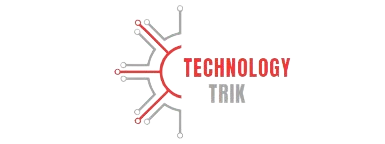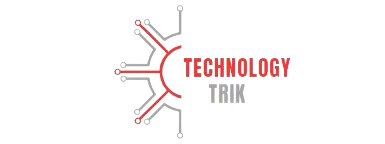Introduction
The beginning Origin human civilization is a subject that has interested researchers, history specialists, and fans for a really long time. Understanding where we come from gives a system to figuring out the mind boggling embroidery of societies, developments, and cultural designs that characterize our present reality. This article dives into the rich and complex history of human development, following its foundations from the earliest primates to the foundation of the principal urban areas and then some.
The Dawn Origin Humanity
Early Hominids and Their Evolution

Human civilization’s Origin starts a long period of time back with the rise of early primates in Africa. These progenitors, for example, Australopithecus afarensis, were quick to display bipedalism, an essential move toward human development. Over the long haul, these primates developed into further developed species, including Homo habilis, known for utilizing basic instruments, and Homo erectus, who branched out of Africa and spread across Eurasia.
The Rise of Origin Sapiens
Something like quite a while back, Origin sapiens showed up on the scene. Not at all like their ancestors, they showed progressed mental capacities, empowering them to foster complex devices, make craftsmanship, and structure early friendly designs. The improvement of language and emblematic idea assumed a huge part in their capacity to coordinate and collaborate, making way for future cultural headways.
The Agricultural Revolution
From Hunter-Gatherers Origin Settled Societies
The change from an itinerant, agrarian way of lifeOrigin settled rural networks marks quite possibly of the main achievement in mankind’s set of experiences. This shift, known as the Neolithic Upset, started around 10,000 BCE in the Prolific Sickle, a district in the Center East. The taming of plants and creatures permitted people to deliver surplus food, prompting populace development and the foundation of extremely durable settlements.
The Birth of Agriculture
Agriculture brought about profound changes in human society. With reliable Origin sources, communities could support larger populations and develop complex social structures. The capacity to store overflow food likewise prompted the rise of exchange, as networks started trading products and assets. This period saw the ascent of early towns and towns, laying the foundation for future human advancements.
The First Civilizations
Mesopotamia: The Cradle of Civilization
One of the earliest and most convincing improvements emerged in Mesopotamia, the land between the Tigris and Euphrates streams.. Around 3500 BCE, the Sumerians laid out city-states, for example, Uruk, which is much of the time thought about the world’s most memorable city. The Sumerians are credited with different turns of events, including the improvement of creating (cuneiform), the wheel, and undeniable level water framework systems.
Ancient Egypt: The Gift of the Nile
Synchronous with Mesopotamia, out of date Egypt succeeded along the banks of the Nile Stream. The Nile’s anticipated flooding cycle gave rich soil to horticulture, supporting an exceptionally incorporated and persevering through progress. The development of fantastic designs like the Pyramids of Giza and the improvement of a complicated arrangement of hieroglyphic composing are demonstrations of Egypt’s high level designing and social accomplishments.
The Indus Valley Civilization
In the Indian subcontinent, the Indus Valley Human progress (around 2600-1900 BCE) displayed striking metropolitan preparation and design ability. Urban communities like Harappa and Mohenjo-Daro included lattice designs, refined seepage frameworks, and high level metallurgy. In spite of its possible decay, the Indus Valley Civilization left an enduring heritage on resulting societies in the locale.
The Classical Age
Greece and the Birth of Western Civilization
The Traditional Age saw the ascent of civilizations that would significantly impact the course of history. In antiquated Greece, the city-provinces of Athens and Sparta assumed vital parts. Athens, specifically, turned into a middle for reasoning, expressions, and sciences, with illuminating presences like Socrates, Plato, and Aristotle establishing the scholarly underpinnings of Western idea. The idea of a majority rules government, spearheaded in Athens, keeps on forming political frameworks around the world.
The Roman Empire: Builders of the Ancient World
Following Greece, the Roman Realm arose as a predominant power. At its level, it enveloped immense domains across Europe, North Africa, and the Center East. The Romans are prestigious for their designing accomplishments, including streets, water systems, and fantastic engineering like the Colosseum. Roman regulation and administration standards lastingly affect general sets of laws and legislative designs in the advanced world.
The Middle Ages and Beyond
The Rise of Feudalism

The fall of the Roman Origin in the fifth century CE introduced the Medieval times, portrayed by the ascent of feudalism. This decentralized framework saw the discontinuity of domains into fiefdoms constrained by neighborhood masters. Regardless of the overall political flimsiness, this period saw huge social and mechanical headways, like the spread of Christianity and the development of Gothic houses of prayer.
The Islamic Golden Age
During a similar period, the Islamic Brilliant Age thrived in the Center East. Researchers in urban communities like Baghdad and Origin made critical commitments to science, arithmetic, medication, and theory. The protection and interpretation of old Greek and Roman texts during this time assumed an essential part in the transmission of information to Europe, at last starting the Renaissance.
The Renaissance: A Rebirth Origin Knowledge
The Renaissance, starting in the fourteenth 100 years, denoted a time of reestablished interest in human expression, sciences, and old style learning. Figures like Origin da Vinci, Michelangelo, and Galileo Galilei pushed the limits of information and inventiveness. This period laid the preparation for the Time of Investigation, prompting worldwide social trades and the inevitable foundation of present day country states.
Conclusion
The beginning Origin human development is a demonstration of mankind’s creativity, versatility, and persistent quest for information. From the early primates to the complex social orders of the Old style Age and then some, every period has added to the rich woven artwork of mankind’s set of experiences. Understanding our past not just gives knowledge into how we showed up at our present yet additionally rouses us to fabricate a future established in the insight and accomplishments of the people who preceded us.



I don’t think the title of your article matches the content lol. Just kidding, mainly because I had some doubts after reading the article.